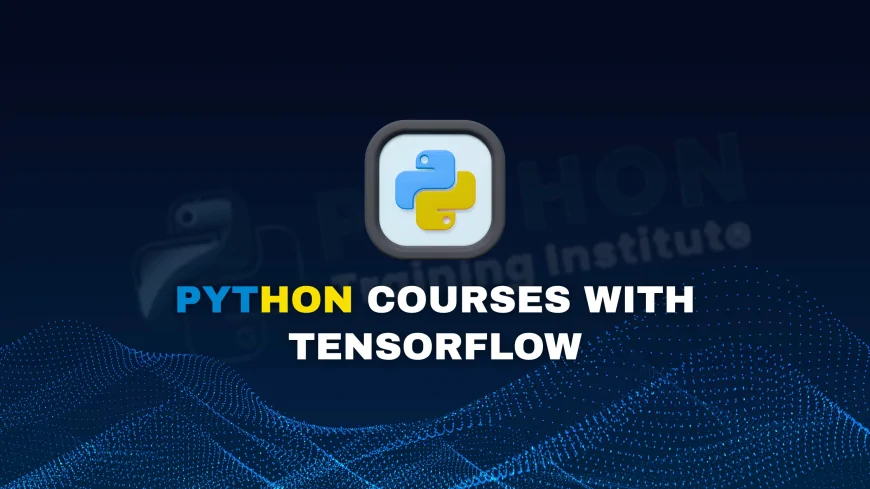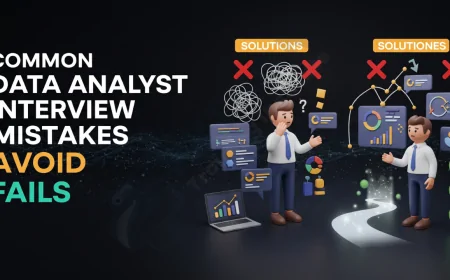Python Courses Covering TensorFlow Pune | Learn Python and TensorFlow for AI in Pune
Learn TensorFlow with Python in Pune. Explore top-rated courses, real-world AI projects, deep learning certifications, and placement-focused programs. Updated 2025 guide.

Table of Contents
- Why Learn TensorFlow?
- How to Choose the Right Course
- Top Python + TensorFlow Courses in Pune
- Typical Curriculum Overview
- Hands-On Projects & Capstones
- Mentorship, Labs & Learning Support
- Certification & Career Outcomes
- Fees, Duration & Payment Options
- FAQs
- Conclusion
Why Learn TensorFlow?
TensorFlow, introduced by Google in 2015, is a powerful open-source framework for building scalable deep learning models, supporting everything from mobile apps to GPU-accelerated research :contentReference[oaicite:1]{index=1}. Mastery of TensorFlow enables developers to deploy robust neural networks across vision, language, and predictive analytics, making it a highly marketable skill in Pune’s booming tech landscape.
How to Choose the Right Course
Selecting the best course that combines Python and TensorFlow can significantly impact your learning curve and career success. Here's a strategic guide to help you make the right choice:
1. Define Your Learning Goal
-
Are you a beginner aiming to understand deep learning fundamentals?
-
Do you need hands-on projects for your data science portfolio?
-
Are you looking to specialize in AI model deployment using TensorFlow?
Tip: Pick beginner-friendly courses with Python basics if you're just starting, and project-based learning paths if you're aiming for jobs.
2. Check the Course Content
Look for these key modules:
-
Python programming essentials
-
NumPy, Pandas, and Matplotlib for data prep and visualization
-
Core TensorFlow operations
-
Convolutional Neural Networks (CNNs)
-
Recurrent Neural Networks (RNNs)
-
Transfer learning and model optimization
-
TensorFlow Serving / model deployment
Tip: Avoid outdated content (TensorFlow 1.x) unless it offers clear upgrade paths to TensorFlow 2.x.
3. Verify Industry-Relevance
Ensure the course includes:
-
Capstone Projects (like image classification, NLP tasks, recommender systems)
-
Resume-grade GitHub portfolio
-
Exposure to real-world datasets
-
Optional modules in TensorFlow Extended (TFX) or TensorFlow Lite
4. Instructor & Institute Credentials
Choose institutes or mentors with:
-
Verified experience in AI/ML
-
Positive student reviews on platforms like Google, Justdial, or CourseReport
-
Partnership with industry or universities
For example, institutes like Webasha Technologies and Skill-Lync offer TensorFlow-specific modules with industry mentorship.
5. Consider Format and Support
-
Mode: Online, Offline, or Hybrid?
-
Flexibility: Are recordings available? Can you attend doubt-clearing sessions?
-
Support: Do they offer 1:1 mentoring or placement help?
A good course offers live support, not just pre-recorded lectures.
6. Compare Price vs. Value
Don’t choose only based on cost. Instead, compare:
-
Duration and depth of content
-
Access to live projects
-
Post-course career services (resume help, interview prep, internship links)
7. Ask About Certification & Recognition
Ensure the course offers:
-
Certificate of Completion
-
Industry-recognized certification (from TensorFlow, Google, etc.)
-
Bonus if linked to job portals or hiring partners
8. Trial Sessions or Demos
Enroll in a free demo session to evaluate:
-
Instructor clarity
-
LMS usability
-
Project depth
Many top Pune institutes like Ethans Tech or 3RI Technologies provide demo access or sample classes.
Top Python + TensorFlow Courses in Pune
-
Webasha Technologies –
-
Highlights: 60+ hours of practical learning, live mentor support, TensorFlow APIs, CNN/RNN implementations.
-
Perks: Includes project work like facial recognition, real-time object detection, and NLP.
-
Mode: Hybrid (Online + Offline in Pune)
-
Internship: Yes, with industry integration
-
Typical Curriculum Overview
A standard Pune-based TensorFlow course includes:
- Python fundamentals & scientific libraries
- Tensor operations, graphs, and sessions
- Core deep learning: CNNs, RNNs, LSTM
- Transfer learning (ResNet, VGG)
- NLP models—word embeddings, sentiment analysis
- TensorBoard visualizations and debugging
- Deployment pipelines: Flask APIs, Docker, cloud deployment
- Ethics, optimization, and performance tuning
Hands-On Projects & Capstones
- Image classifiers (e.g., cats vs. dogs)
- Sentiment analysis with NLP pipelines
- Time-series forecasting (stocks or weather)
- Transfer learning for domain-specific datasets
- Deploying models as REST services using Flask
- Mini edge-AI tasks using TensorFlow Lite
Mentorship, Labs & Learning Support
Top Pune programs include:
- Structured mentorship from ML engineers or PhDs
- GPU labs or cloud GPU access for faster model training
- Office hours, discussion channels, peer learning communities
Certification & Career Outcomes
Completion certificates often come from institutes or partners like Microsoft/IBM. Career outcomes include roles as AI Engineer, Data Scientist, or ML Developer. Pune's tech firms and global IT hubs regularly hire certified ML professionals with strong portfolios.
Fees, Duration & Payment Options
- Typically ₹25,000–₹80,000 depending on depth and format
- Course duration: 6 weeks to 6 months
- Online: ₹25K–40K; Offline: ₹40K–80K
- Installments, early-bird discounts, and student cohorts supported
Frequently Asked Questions (FAQs)
1. Do I need prior machine learning experience?
Courses often cover basics; strong Python and math understanding help with advanced topics.
2. What hardware is required?
A PC with ≥8 GB RAM is enough; most training offers cloud GPU labs.
3. Are online courses as effective as offline?
When live and mentor-led, online courses match offline efficacy and add flexibility.
4. How many projects will I build?
Expect 3–6 hands-on projects including capstone per typical course outline.
5. Is TensorFlow better than PyTorch?
Both are industry-grade; TensorFlow has broader production tooling and ecosystem support.
6. How long does the course take?
Ranges from 6 weeks for essentials to 6 months for in-depth and placement-focused.
7. Will I receive a certificate?
Yes—upon completion, institutes award certificates; partner badges may also be included.
8. Do they cover deployment?
Most programs cover deployment via Flask, Docker, and sometimes cloud platforms.
9. Are weekends classes available?
Yes—weekend batch formats are common for working professionals.
10. Can beginners attend?
Yes—courses typically start with Python basics before moving to TensorFlow.
11. What languages are used?
Python is primary, with SQL or bash used for data handling and scripting.
12. Do courses include AI ethics?
Yes—most advanced programs include modules on ethical AI, XAI, and data privacy.
13. Are placement services included?
Many providers offer placements support—resume, mock interviews, and recruiter connections.
14. Can I switch between online/offline modes?
Some institutes allow batch mode transfers based on availability.
15. Is mentorship available?
Yes—structured one-on-one mentorship sessions are common.
16. Do I get access to labs after course?
Lifetime or extended access to recorded sessions and cloud resources is typical.
17. What roles can I apply for?
ML Engineer, AI Developer, Data Scientist, AI Consultant, and related profiles.
18. Are TensorFlow Lite or mobile covered?
Some programs include edge deployment like TensorFlow Lite and TFLite Micro.
19. Are scholarships available?
Yes—student discounts and early-bird pricing are provided by many Pune institutes.
20. How do I choose a program?
Assess based on project depth, mentor credentials, placement support, and mode flexibility.
Conclusion
TensorFlow-powered Python training in Pune provides a fast-track to deep learning and AI roles. Look for programs offering strong mentorship, deployment training, and real projects. With a proper TensorFlow portfolio, you can step confidently into AI-centric job roles or build impactful production systems.
What's Your Reaction?
 Like
0
Like
0
 Dislike
0
Dislike
0
 Love
0
Love
0
 Funny
0
Funny
0
 Angry
0
Angry
0
 Sad
0
Sad
0
 Wow
0
Wow
0
















